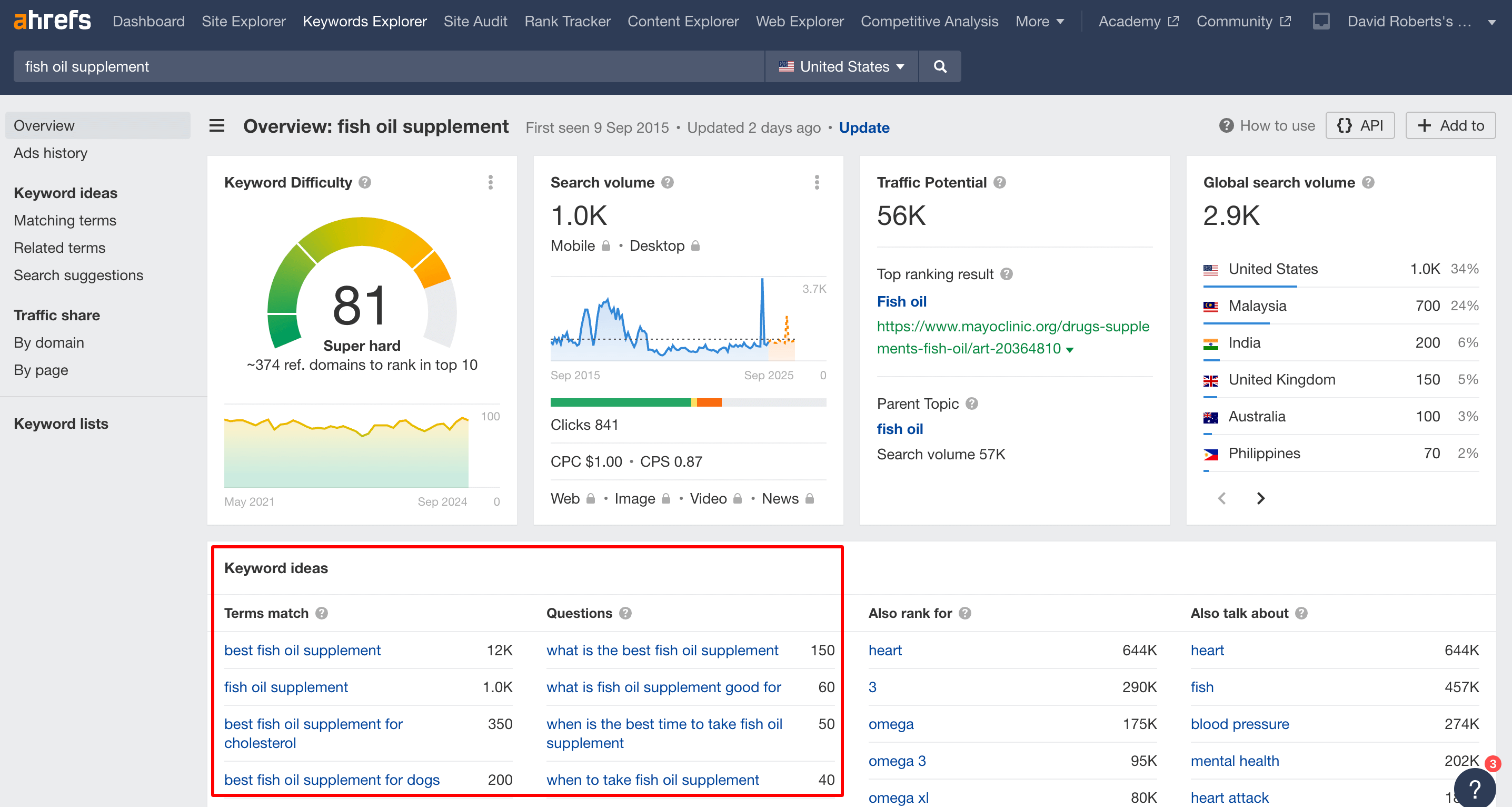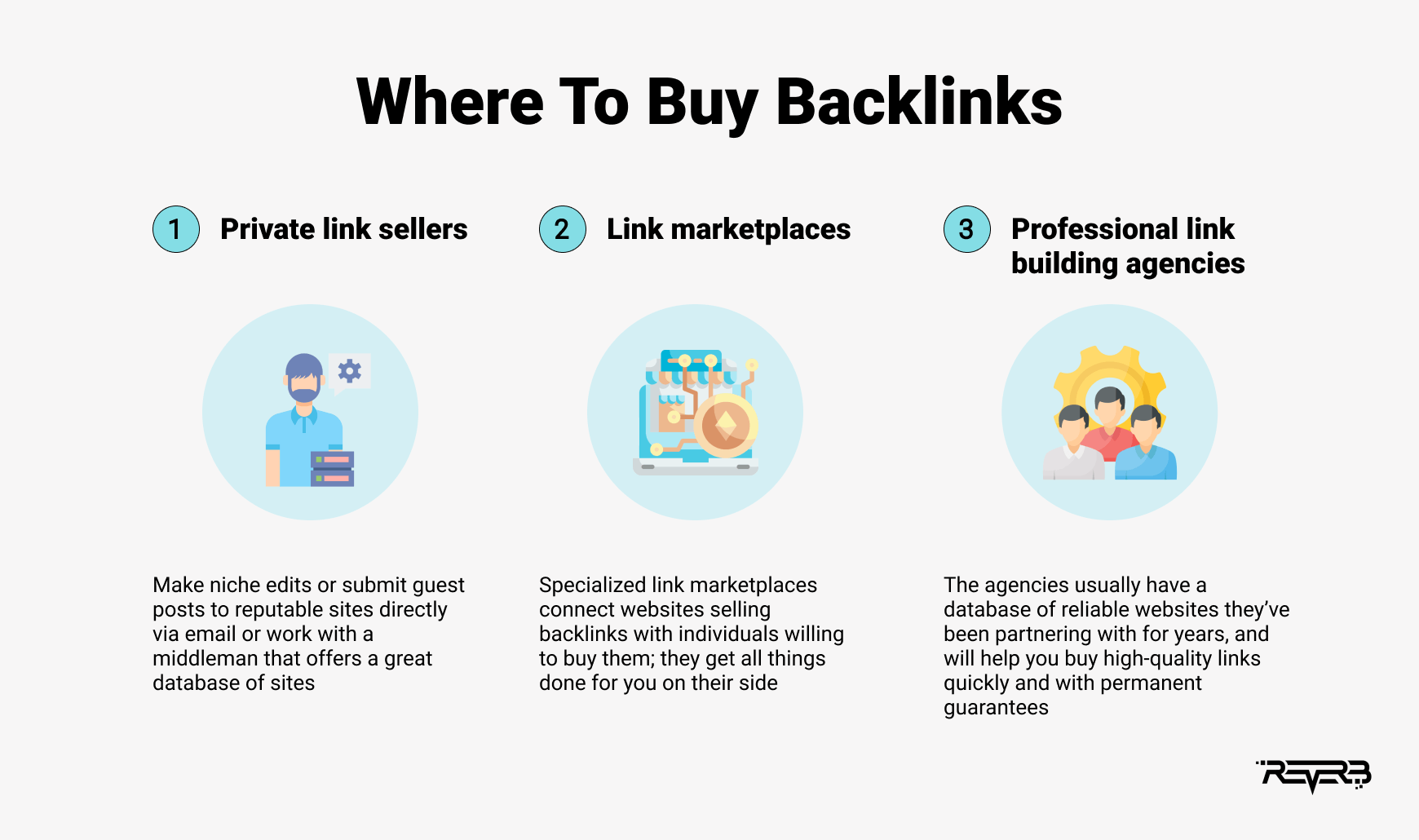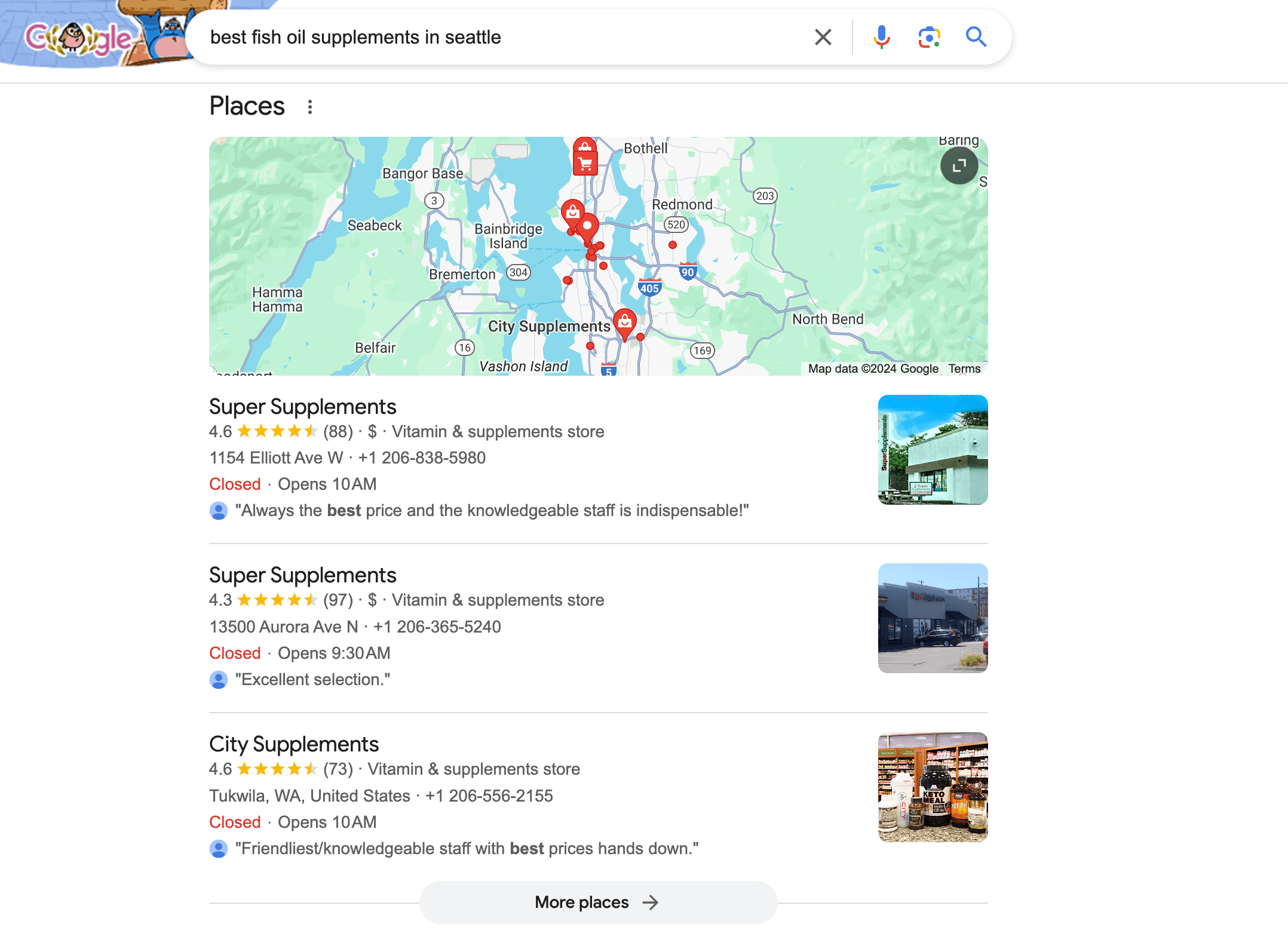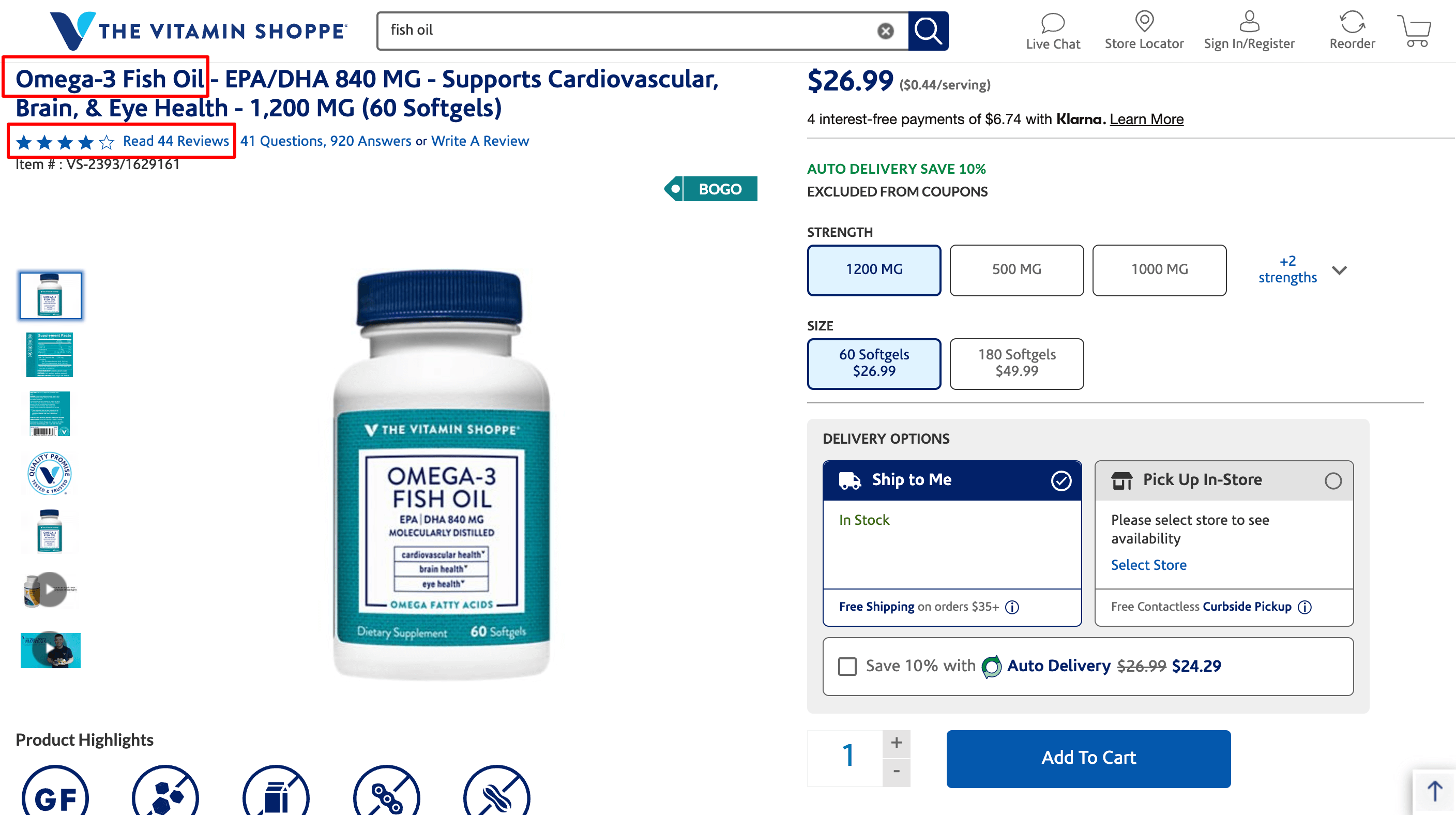Getting your fish oil supplements business to the top of Google rankings is a game-changer for sales and visibility.
The market competition in the online supplements industry is crazy. But, if you know what search engine optimization (SEO) strategies to use, you can stand out among the crowd. Not only will you drive more traffic to your site but you’ll attract ideal prospects and customers as well.
Today we’re going through some simple yet powerful SEO techniques to help optimize your fish oil supplements business and increase awareness on Google.
What Is SEO And Why Is It Important?
Search engine optimization (SEO) is the practice of making your website more visible on search engines such as Google. If someone searches for something using keywords related to fish oil supplements, you ideally want your company’s website to be the first link they see. That’s because most people don’t look beyond the first couple of options, and more traffic means more sales.
All in all, proper SEO will help Google recognize that your site is reputable, relevant, and useful.
7 Essential Steps To Rank Your Fish Oil Supplements Business Higher On Google
There are methods to climb those rankings so that when potential customers search for fish oil supplements online, they’ll find you much easier.
1. Use the right keywords
Keywords are the words and phrases that people type into search engines when they are looking for something online. If you want to improve your rankings in organic search results, you need to find the right keywords for your fish oil supplements business and use them throughout your site.
How to find the right keywords:
First, put yourself in the mindset of a customer trying to find products or information like what you offer. For example, many people may search with keywords such as “best fish oil supplement,” “omega-3 supplements” or “fish oil benefits.” You can also use tools like Google Keyword Planner or Ahrefs to discover which keywords related to your business have a high monthly search volume.

Once you’ve gathered a list of keywords, include them in the most important parts of your website. This means page titles, headings, product descriptions, and blog posts. However, don’t overdo it. If Google thinks you’re using a keyword too many times artificially within your website, it can penalize you by pushing your site down its rankings. Ultimately, though, you need to focus on writing for people but with search terms in mind.
2. Create high-quality content
Ensuring that you have interesting and relevant content on your website is key to good SEO. Google likes nothing more than seeing lots of fresh (unpublished anywhere else) text on a website that’s useful in answering searches people put into their search engine. That means regularly adding blog postings or wider articles/guides around fish oil supplements, types of fish oil, benefits, how to choose the right one, etc., will work magically.
Types of content to create:
Consider writing blog posts on topics such as:
- “The Health Benefits of Fish Oil for Joints and Heart Health”
- “How to Choose the Best Fish Oil Supplement for Your Needs”
- “Fish Oil vs. Flaxseed Oil: Which is Better for You?”
Ensure your content is well-researched, easy to read, and answers the questions your customers are asking. The longer visitors stay on your site reading your content, the more Google will see your site as valuable, which can help improve your rankings.

3. Optimize your website for mobile devices
More people than ever before are using their smartphones to browse the internet, so if your website isn’t mobile-friendly, you could be losing out on customers. Google also takes into account if a website is mobile-friendly when ranking it in search results, so if it works great on both smartphones and tablets, it’s more likely to appear higher up.
How to optimize your site for mobile:
To make your site mobile-friendly, you need it to load quickly, be easy to read, and be easy to navigate on a smaller screen. To do this, use a responsive design that adjusts automatically for the size of the device being used. You can test how mobile-friendly your site is by using Google’s Mobile-Friendly Test tool.

4. Improve your website’s loading speed
The speed that your site loads can have a big impact on your rankings. Google prioritizes sites that load quickly as they are seen as providing a better user experience. If your site takes too long to load, people will leave, and this will hurt your rankings.
How to speed up your website:
To improve loading speed, compress your images so they don’t take up too much space, avoid using too many heavy plugins, and consider using a solid hosting service. You can also use tools like Google PageSpeed Insights to see how fast your website loads, and it will give you recommendations on what you need to fix.
5. Build quality backlinks
Backlinks are simply links from other websites pointing back to your site. Google counts these links as ‘votes of confidence’. If authority sites link back to your site, then it’s really a signal to search engines that the content on your site is relevant and useful. The more high-quality backlinks you have, the better chance you have of ranking better.
How to get high-quality backlinks:
One of the common strategies to get backlinks is by asking blogs, health websites, or online publications who write about supplements if you can do a guest post, write an article for them, or collaborate in some other way and include your link. You can also create shareable content like infographics or guides where those links will be included.
You can also submit your business on directories, health forums, or industry-specific websites to direct quality traffic to your website.

6. Make use of local SEO
If your fish oil business has a physical location or you target a specific geographic area, local SEO can be a game changer. Local SEO is the optimization process of your website that appears on Google when people search for something like “fish oil supplements” near me.
How to use local SEO:
The first step to local SEO is creating a Google My Business profile. It adds your business to Google Maps and will also show in the local results section of the SERP (search engine results page). Add your address, phone number, and hours of operation, and make sure you include the link to your website as well. Local rankings are heavily influenced by reviews, so encourage happy customers to leave a review on your GMB listing.
You should write location-based keywords in your website content, like “best fish oil supplements in [your city].” Let Google acknowledge that your business is feasible for the people who search in your area.

7. Optimize product pages
Your product pages, in particular, are what’s going to sell your products on your website. It’s not enough to just have a picture and the checkout button on these pages. You’ll also need to optimize them so that they rank well in Google and convert your visitors into customers.
How to optimize your product pages:
Be sure to use clear and descriptive titles as well as high-resolution images and detailed descriptions of each fish oil supplement that you sell. Use your main keywords in the product titles and descriptions, but don’t keyword stuff it. Use these descriptions as an opportunity to explain the features of your fish oils, their benefits, how they should be used, and what makes your brand better than the others. You can also include review scores right below the title.

Conclusion
SEO can give your fish oil supplements business a competitive edge and help you secure one of the top positions in Google. Use the right keywords, produce quality content, make sure your site is mobile-friendly and fast-loading, build backlinks, pay attention to local SEO, and optimize product pages to boost your online visibility.
Keep in mind that SEO is not a one-time job. Regularly check how your website performs in search engine rankings, keep on top of the latest trends in SEO, and constantly improve your site if you want to stay high up there at the top of Google.











